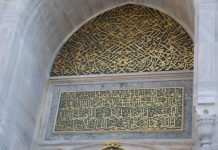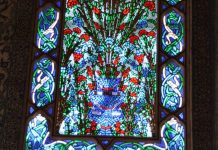But as he could not proceed to put his plans into action, for strong winds were blowing at the time and he feared shipwreck, he waited patiently for two months near the harbour of Hiericho and got ready everything that he needed for fighting again on land and sea.
The Roman and Venetian fleets guarded the straits as far as possible and whenever the sea lent itself even slightly to the idea of sailing, they intercepted the ships which were trying to cross from Italy to Robert. Since it was not easily possible to collect the necessary provisions, not even from the mainland, for Robert’s army which was encamped along the river Glycis, as the men from Dyrrachium caught those who came out from Robert’s trenches for foraging or anything else, his men began to suffer from hunger, and besides this the inclement climate of the district did them great harm.
So that in the course of three months a total of ten thousand men are said to have perished. The same disease also attacked Robert’s cavalry-forces and destroyed many. In the cavalry nearly five hundred of the Counts and the most valiant picked men were carried off by illness and famine, whilst in the lower ranks countless horsemen perished.
Water running down its bed as usual
Now Robert’s ships, as we have said, had been hauled up into the river Glycis, this was almost dried up by the drought, as a very hot summer had set in after the winter and the spring, and it had scarcely as much as water running down its bed as usual, and therefore he hardly knew how to drag them down to the sea again. But being of an inventive mind and a deep thinker, he had posts fixed along either side of the river, and connected with closely woven wattle-work, then behind these he had large trees cut down at the root, laid flat and sand strewn over them, so that the water was collected and flowed all together into one spot, that is the channel formed by the posts.
Gradually the water formed pools and then filled the whole bed of the river and reached a fair depth, until finally it raised the ships which had hitherto been embedded in the soil so that they floated on the top. Then after this all was fair sailing and the ships were drawn down to the sea without any difficulty.
IV When the Emperor heard what Robert had done, he wrote immediately to Pacurianus telling him of Robert’s irresistible assault on, and capture of, Valona, and of his total disregard of the ills which had befallen him on land and sea, and even of that defeat which he had suffered at the first setoff. He therefore commanded Pacurianus not to delay but collect his forces more quickly and come and join him. That then was his message to Pacurianus.
Read More about Bohemund came demanding their acclamations








